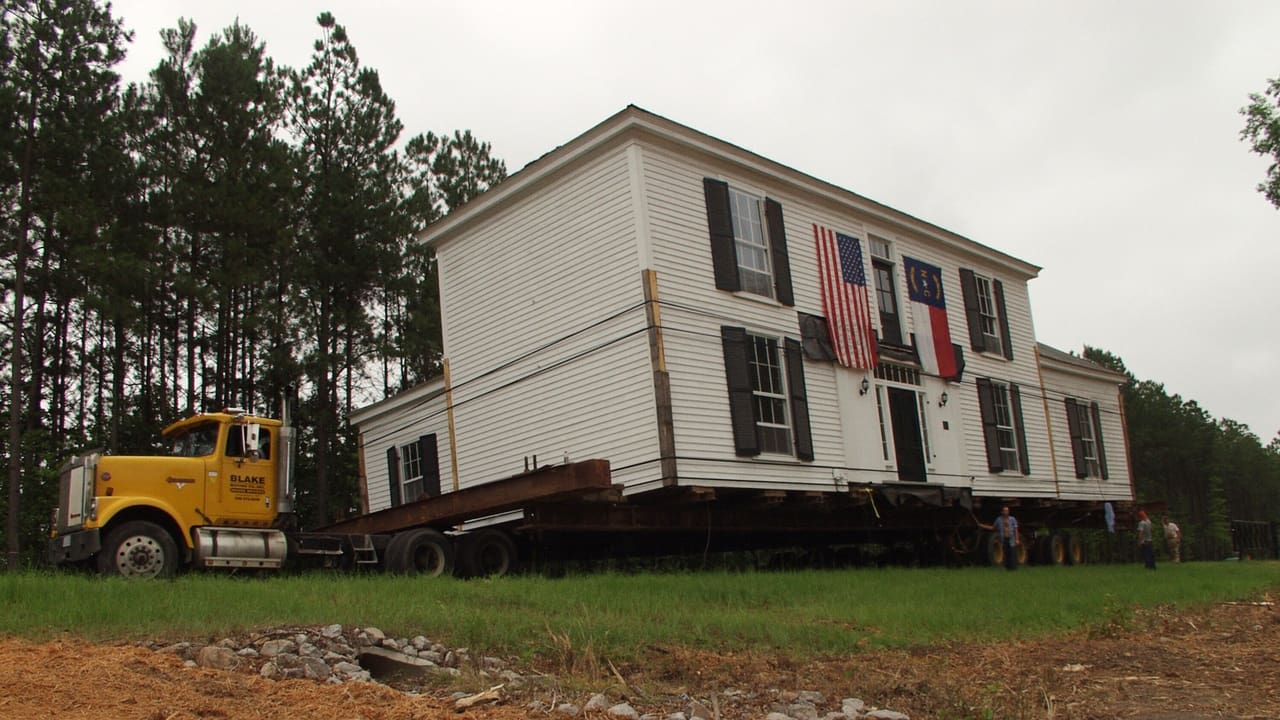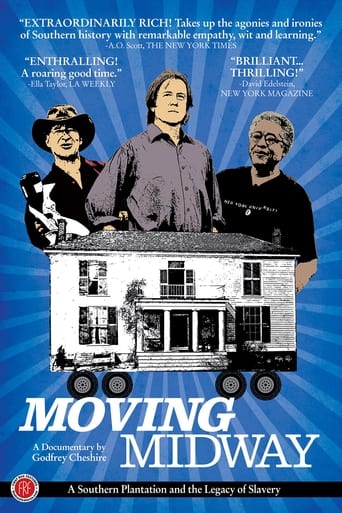



just watch it!
This is a tender, generous movie that likes its characters and presents them as real people, full of flaws and strengths.
View MoreI think this is a new genre that they're all sort of working their way through it and haven't got all the kinks worked out yet but it's a genre that works for me.
View MoreIt’s sentimental, ridiculously long and only occasionally funny
View MoreThis is a charming documentary, ostensibly about moving an historic family plantation home to a new setting, but actually about much more. The family's quixotic history, mingling white and black branches of the family, emerges gradually as the film progresses. We meet many fascinating characters, and hear many fascinating stories dating back to the Civil War. As the story evolves, new characters are introduced serendipitously as people in search of their ancestry emerge from far-flung places, including Harlem. Ultimately, the actual moving of the house is as fascinating and nerve-wracking as anything else in this idiosyncratic and very uplifting film. I can't recommend it highly enough.
View MoreMOVING MIDWAY is the saga of 'Midway Plantation', ancestral home to the family of Godfrey Cheshire, the director of the film. In the winter of 2003 Cheshire learned that his cousin, Charlie, caretaker and owner of the mansion and huge estate is going to move the antebellum home to a new location a few miles away due to intense commercial development in the area. During the preparation for the move, the director is contacted by a black man, Robert Hinton, Associate Director of African-American studies at New York University who turns out to be a blood relative, and this development allows Cheshire to show how the specter of slavery impacted the family legacy. The film examines how family members of both races exchange details of their heritage, and come to terms with the relocation. Cheshire makes the case that much of what is considered 'historical fact' is based on biased opinion and myths which have been deeply influenced by popular culture, and especially Hollywood. The issue of Race is handled with great tact and gentility, however the fundamental component of Class is largely ignored. Although by the close of the film, we are introduced to many of the Black relatives, it is the White family members who have retained ownership of the land, and this is the source of the the family's substantial wealth. I wonder how the tone and content of the film would have changed if somebody had whispered the word, "REPARATION".
View More